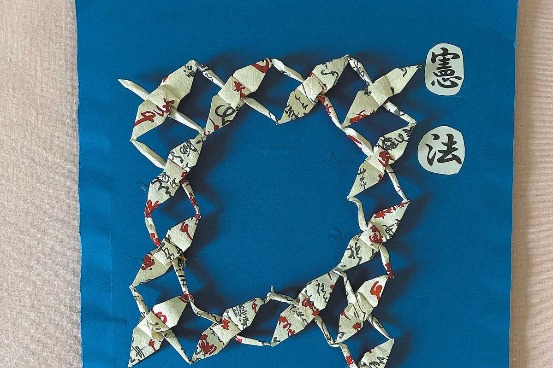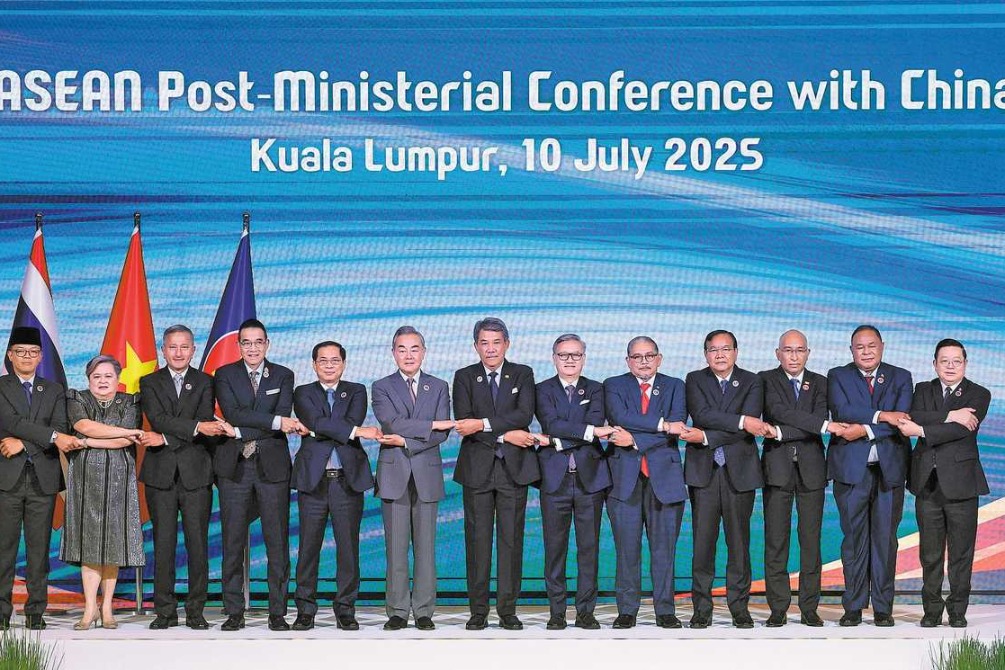US national defense strategy aims at China, Russia

The 2018 US National Defense Strategy (NDS) unveiled on Friday named China and Russia as top threats to the US, just as the US National Security Strategy announced last month.
Besides China and Russia, the Democratic People's Republic of Korea, Iran, Hezbollah and Al-Qaeda were also mentioned in the NDS as major threats to the US.
"We face growing threats from revisionist powers as different as China and Russia are from each other. Nations that do seek to create a world consistent with their authoritarian models," Defense Secretary Jim Mattis said on Friday.
The unclassified version of the NDS released to the public singled out China and Russia multiple times.
"China is a strategic competitor using predatory economics to intimidate its neighbors while militarizing features in the South China Sea," the NDS said. "It is increasingly clear that China and Russia want to shape a world consistent with their authoritarian model -- gaining veto authority over other nations' economic, diplomatic, and security decisions,"
The NDS claims that China is leveraging military modernization, influence operations, and predatory economics to coerce neighboring countries to reorder the Indo-Pacific region to their advantage. "Long-term strategic competitions with China and Russia are the principal priorities for the Department," the NDS said.
China has not yet responded to the just unveiled US defense strategy. However, when US President Donald Trump announced US National Security Strategy in December, Foreign Ministry spokeswoman Hua Chunying stressed China's approach on expanding common interests in upholding global peace, development and prosperity.
"Cooperation is the only right choice for China and the US and win-win cooperation can lead to a better future," Hua said.
"We urge the US side to stop deliberately distorting China's strategic intentions, and abandon such outdated concepts as the Cold War mentality and the zero-sum game, otherwise it will only end up harming itself as well as others,"
"The NDS appears to be a pastiche of slogans masquerading as a strategy," said Douglas Paal, vice-president for studies at the Carnegie Endowment for International Peace.
He said many in the Washington establishment will welcome its endorsement of alliances, after Trump's earlier criticisms. "Beyond that, however, what I see is a wish list for ways to regain global dominance without a roadmap to get there," Paal said.
For years, the Pentagon has used NDS to argue for a big defense budget from the US Congress. The US now spends more on its military than the spending of the next 10 countries combined.
Dov Zakheim, senior fellow at CNA Corporation and former undersecretary of defense from 2001 to 2004, said "if you don't come up with a strategy, you are never going to justify getting the money".
He noted that there is a nuanced difference between China and Russia when they are mentioned in the NDS.
"Russia is pretty much explicitly called an adversary. China, there is still a hedge to it. I think that there is a lot to do with the recognition that we are each other's huge trading partners," he said on Friday afternoon at a conference call organized by the Atlantic Council.
"We have a stake in each other's economy. Therefore, if their economy goes down, that doesn't help us. If our economy goes down, that doesn't help them. So it's a more nuanced relationship," he said.
Zakheim said both China and the US are powerful countries and both want to avoid mistakes. "We need to be as modernized and as capable as possible, just like China feels it has to be," he said.
He described the NDS language with Russia is tougher vis-à-vis China. "As long as China is willing to work with us, you are not going to see us being aggressive with China,"
Christine Wormuth, director of Adrienne Arsht Center for Resilience at the Atlantic Council and former undersecretary of defense from 2014 to 2016, described the new strategy as largely a continuity of the various versions under the Obama administration, in particular its major focus on China and Russia as strategic competitors.
She noted that the unclassified version of the NDS emphasizes that the US continues to offer open opportunities for competitors and adversaries for cooperation but from a position of strength.
"I think this administration will seek to find opportunities to cooperate where it makes sense with China and even with Russia, but from a position of strength," she told the conference call on Friday.
chenweihua@chinadailyusa.com































